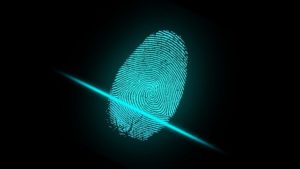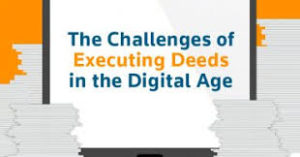With Massachusetts under social distancing and stay at home rules and the closure of essential businesses, many law firms are operating under different conditions. Lawyers are resorting to the help of expanded use of the Internet, including email, video conferencing and the use of digital and / or electronic signatures for important client documents.
This means that even if lawyers and their clients cannot meet face to face, much normal business can still take place, albeit under what has become the ‘new normal.’ This article will focus on the use of digital and electronic signatures and their validity under current law.
What are Digital and Electronic Signatures?
Digital and electronic signatures are two different methods that allow individuals to sign documents of all types in a safe and secure way. The correct use of either type of signature is at least as secure as a ‘wet’ signature, i.e. a signature made manually. The technology that allows both types of signature to function has actually been around for at least ten years, but their true value has only become more evident in these troubling times of COVID-19.
The best way to differentiate between digital and electronic signatures is to remember that digital signatures are primarily used by an individual to sign a document that is being sent to someone else. Electronic signatures, by contrast, are used when asking another person to sign a document you have sent them.

Digital signature like a fingerprint
A digital signature is generated as a distinct and unique digital fingerprint using mathematical algorithms. Any tiny modification of the fingerprint, also known as the hash, would instantly render the authenticity of the digital signature invalid.
An e-signature, or electronic signature, is a signature that is legally binding and used on a document that is sent via one or another electronic signature provider, such as DocuSign or Soda PDF. The person who signs the document is able to do so by simply sending the e-signature back by email.
The Legality of Electronic Signatures
What has become a problem at the moment is when a contract needs to be drawn up and a signature is required to make it a legal document. Electronic signatures are not to be confused with signing a document manually (a so-called ‘wet’ signature), scanning the document and sending it by email or fax. This is perfectly legal, but can be subject to forgery and less easy to arrange in current conditions when offices are not open. To legalize a document more remotely, an electronic signature is be the best way to go.
It has been 10 years since electronic signature legislation became law. Up to now electronic signatures in Massachusetts have been used for offers, purchases as well as sale agreements. Many prefer to use DocuSign and under the Massachusetts Uniform Electronic Transactions Act (UETA), any real estate contract which is electronically signed which complies with the law is legal and valid. Laws have been put in place to cover electronic signatures. The 2000 Electronic Signatures in the Global and National Commerce (ESIGN) Act established the validity of electronic records and signatures for anything related to both interstate and overseas commerce, as described in the Federal Deposit Insurance Corporation.
Additionally, the Uniform Electronic Transactions Act (UETA) is a unilateral law at state-level that permits the acceptance of electronic signatures. This has been adopted by most states including Massachusetts. Any remaining states have their own laws governing the acceptance of e-signatures. When done the right way a signed electronic document is as good legally as one which is signed using an ink pen. There are some differences and there are rules which companies are required to follow when they are drafting a contract to be signed electronically. There are still some short sale lenders that will only accept wet signatures.
How to Get Electronic Signatures
There are many services and applications available for electronic signatures like Adobe Sign, DocuSign and eSignLive. A signature program can get signatures using a touchpad interface, typing out a name, using a designated pin code or even just clicking a checkbox.
When a contract document is being prepared which needs to be legally binding, according to Adobe Sign, there are specific rules that need to be met to ensure the signature is valid:
The Real Estate Industry and Electronic Signatures
The real estate industry can share a lot remotely, like detailed video of a property and video communication between the agent and the buyers. The Massachusetts real estate industry was practicing social distancing for a while when showing potential buyers properties. However, as the virus became more prevalent, potential buyers were reluctant to visit new properties so deep cleaning of properties was done before each visit. As time has moved on the real estate industry is using video as its main way of showcasing properties and it can perfectly well use electronic signatures to finalize contracts.
Privacy and Security
Electronic signature software that can be trusted should contain appropriate security measures to make sure that the agreement is legitimate so that fraud can then be prevented. Different programs will provide different ways of authentication to find out if the signer is who s/he says they are. For the best security, programs should be used that allow multiple forms of authentication to be used. Another commonly used security measure is using a digital signature with an electronic one. eSignLive states that digital signature encryption is used which provides security for the e-signed data.
If by any chance, an e-signed document has been modified or even tampered, digital signature technology can detect it and immediately invalidate the affected document. Using digital signatures prevents tampering but audit trails may also be used which confirm a document is legitimate. An audit trail is an embedded log in the document which includes information about who signed it, what order, where and when.
Not everyone is keen to use electronic signatures. The preference for wet signatures, as has been observed by some in the short sale lending sector, is more a case of old habits dying hard and ease of familiarity rather than a question of legality. The IRS and FHA, for instance, have allowed e-signatures on tax and loan documents now since 2012.
You can be rest assured that if you use the services of the Law Offices of Richard Mucci in Winchester MA, the authenticity and legal validity as well as the confidentiality of all documents shared with clients is taken very seriously.

